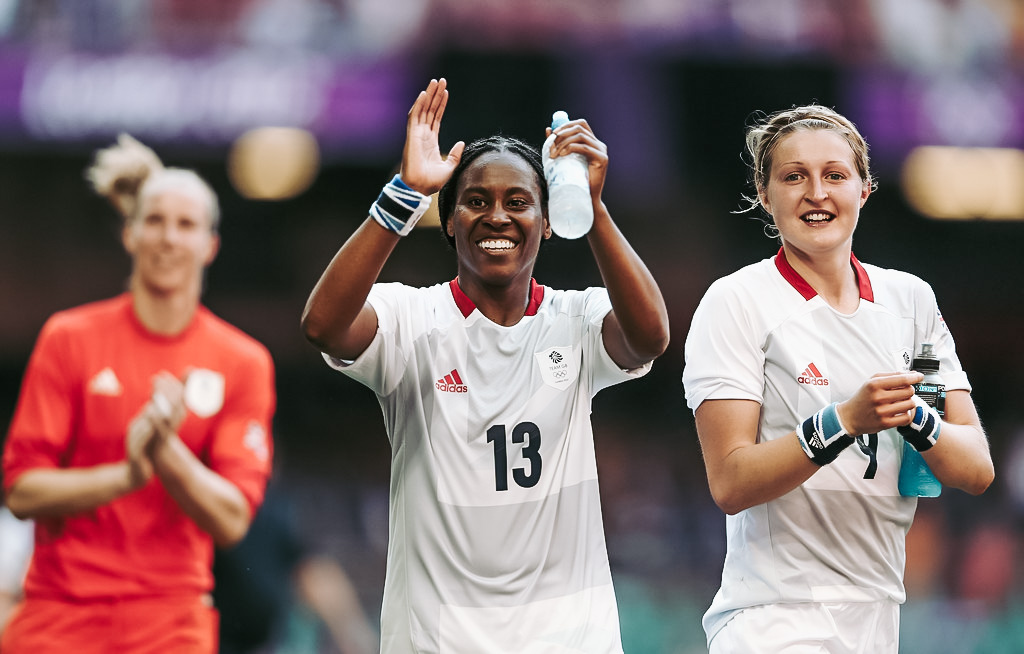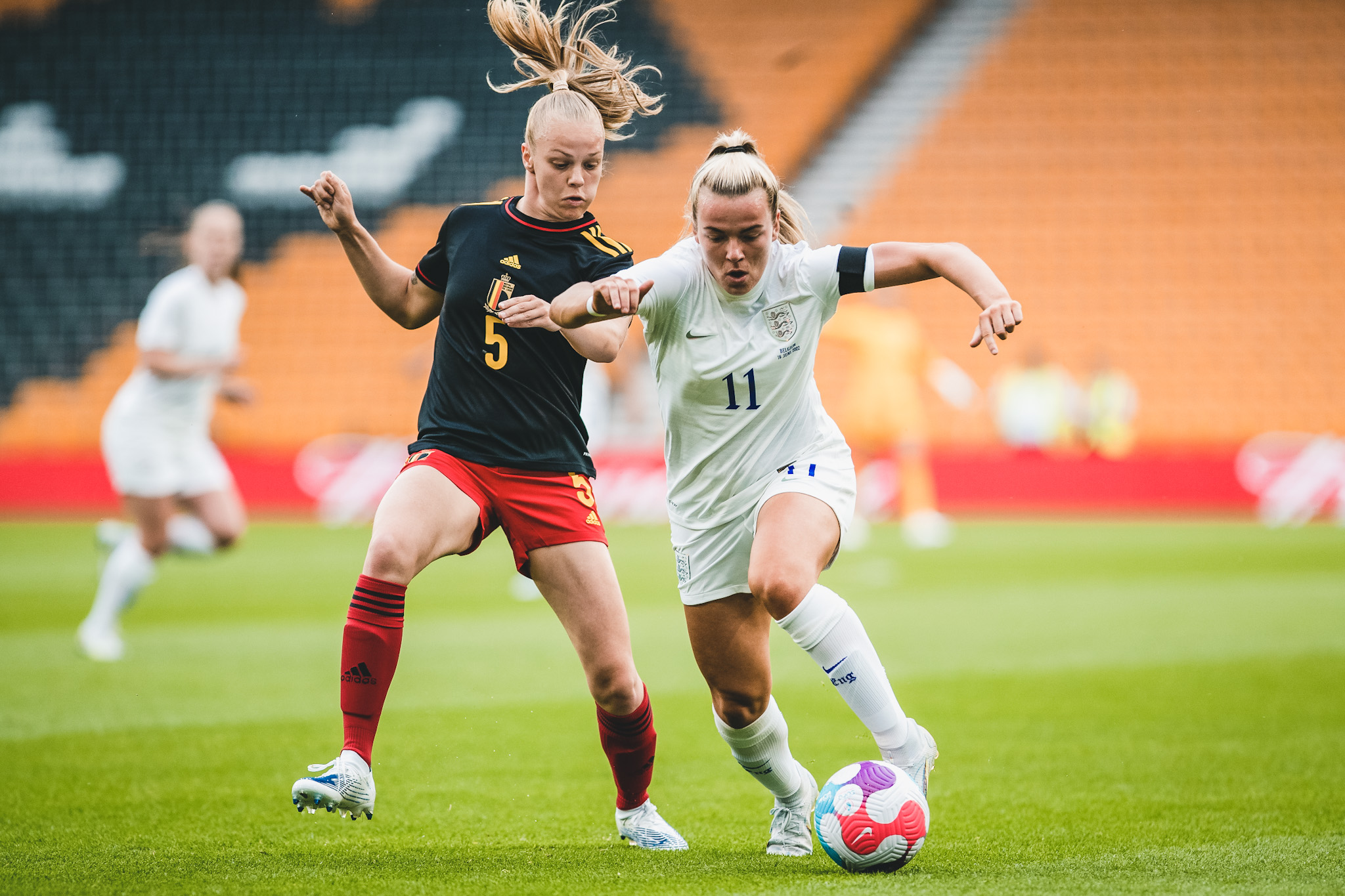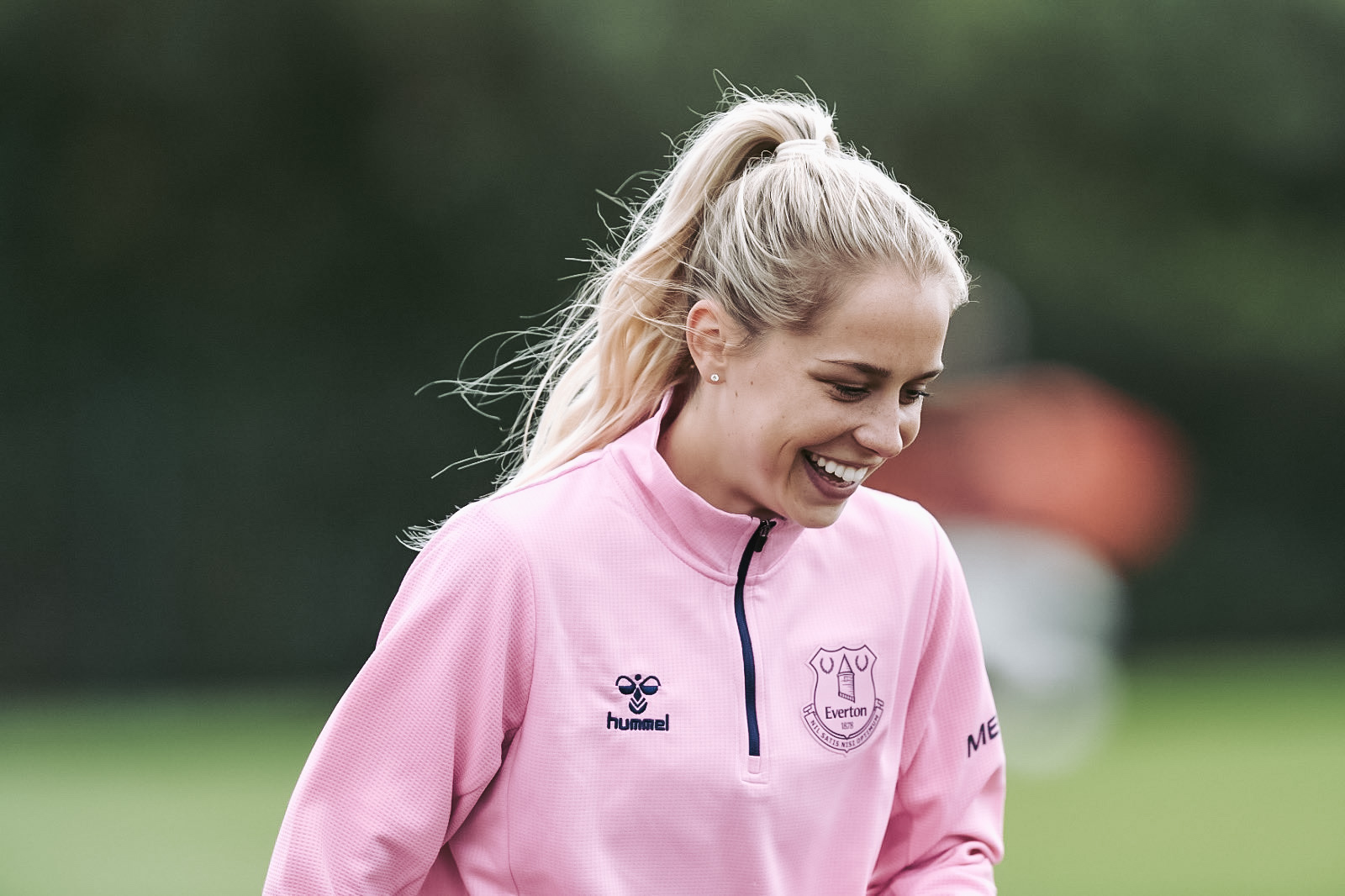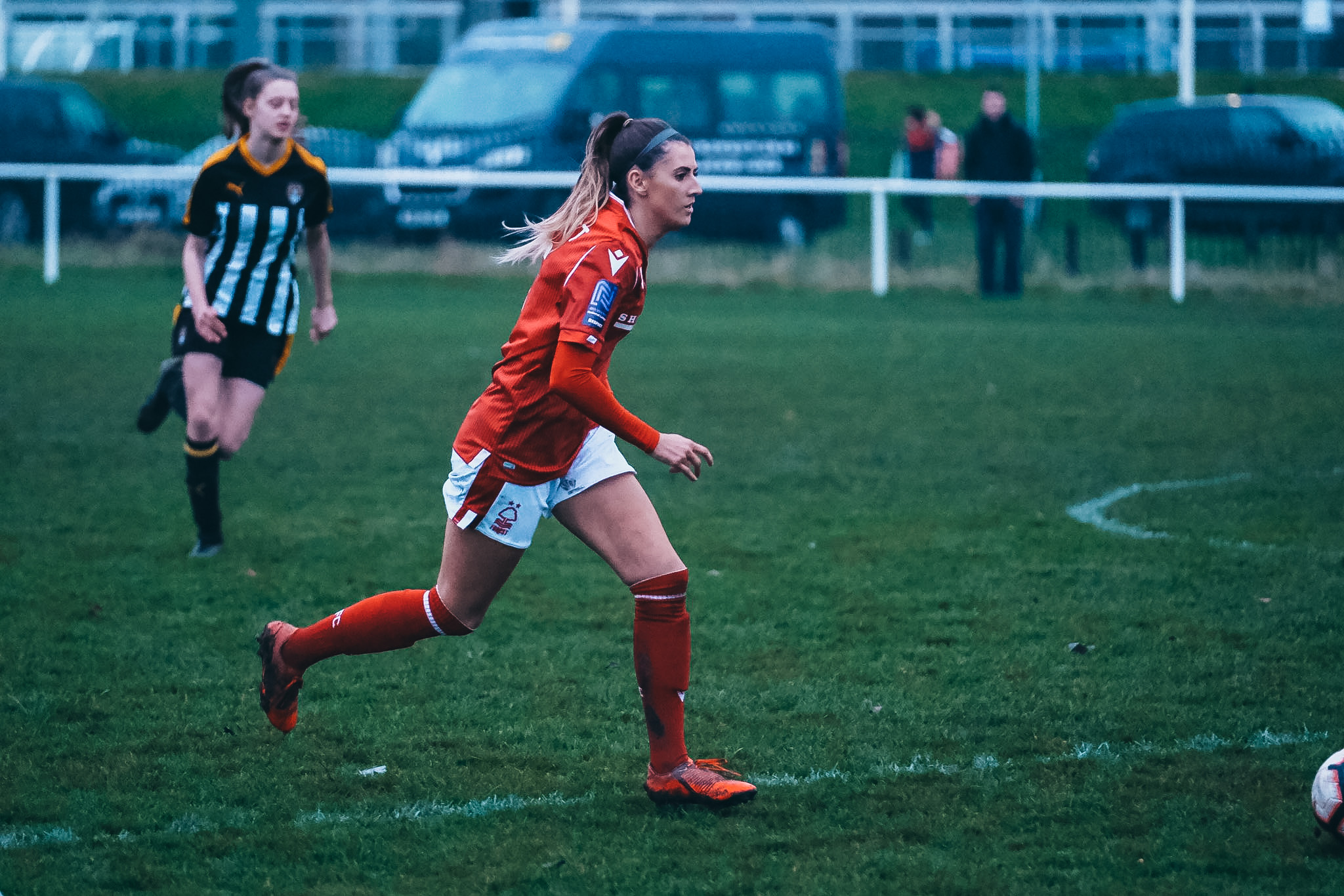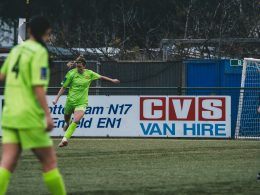We are weeks away from the beginning of the Olympic Games in Tokyo, twelve months after it was originally scheduled. This will be the second time that Team GB will be fielding a women’s football team. To mark the occasion, Daisy and I were fortunate enough to spend some time with Ifoema Dieke. Dieke was one of only two non-England players within the Great Britain women’s football team that competed in the London 2012 Olympics.
Currently coaching in Florida, she reassures me that in reality, everyone knows her as Iffy.
Born in the United States to Nigerian parents, although Iffy elected to represent Scotland, the country that she moved to when she was three years old. Since making her debut against Greece in 2004 she picked up an impressive 123 caps in her thirteen-year career.
In the build-up to her selection, Iffy remembers that the creation of this team became quite political between the home nations football federations. She told me that she was always the main set that she wanted to leave her name in the mix, “If you don’t get selected then you don’t have a decision to make.”
On being selected for the squad, Iffy described how she could only tell her family until the news was made public.
For Iffy and Kim Little meeting up with the squad was a unique experience because with Scotland they’d never qualified for a major tournament before. Being one of only two non-English players within the squad wasn’t something that she felt conscious of. She said, “When it comes down to it a lot more was made of it by the media. I didn’t look at it that was as I knew a lot of the players having played with and against them in the past. I didn’t know the coaches and their styles so that getting to know what Hope wanted was the only difficulty.
In the build up to the tournament Team GB drew their warm up match against Sweden 0-0. While just the one match before the Olympics begun wasn’t ideal it isn’t something that Iffy feels hampered the squad’s preparation. Telling me, “We never thought about it. Because it was mainly the England squad there wasn’t much of a tweak as it’s not like you’re trying to knit together a completely brand new team by having like 6, 7, 8 players coming. So I don’t think that was ever an issue.”
While the transition was quite smooth for Kim and Iffy things might be more difficult for Hege’s squad in Tokyo as the 2012 team had the luxury of Hope being well established as the England manager. “With Hege taking over not too long ago she’s not had that solid group who know the way the she wants to play. There is definitely going to be more than two non-English which is going to add another dimension to things. Although these players are going to be used to playing with each other against each other at club level. In terms of the chemistry on the pitch, good players can play with good players and there’s enough good players available to have like the best squad possible going at that tournament.”
The team won their first Olympic group game 1-0 against New Zealand. Iffy describes, “In the first game there was a lot of attention and playing in front of thirty-thousand people was new to me. We didn’t feel pressure but we knew that there were eyes on us for a number of reasons.”
“The goal was to qualify so to get that first win and a clean sheet was ticking the first box. We didn’t play the greatest game but we got the win so that breeds confidence into you. New Zealand have been to the Olympics and the World Cup a number of times and are an experienced team who had played together for a number of years.”
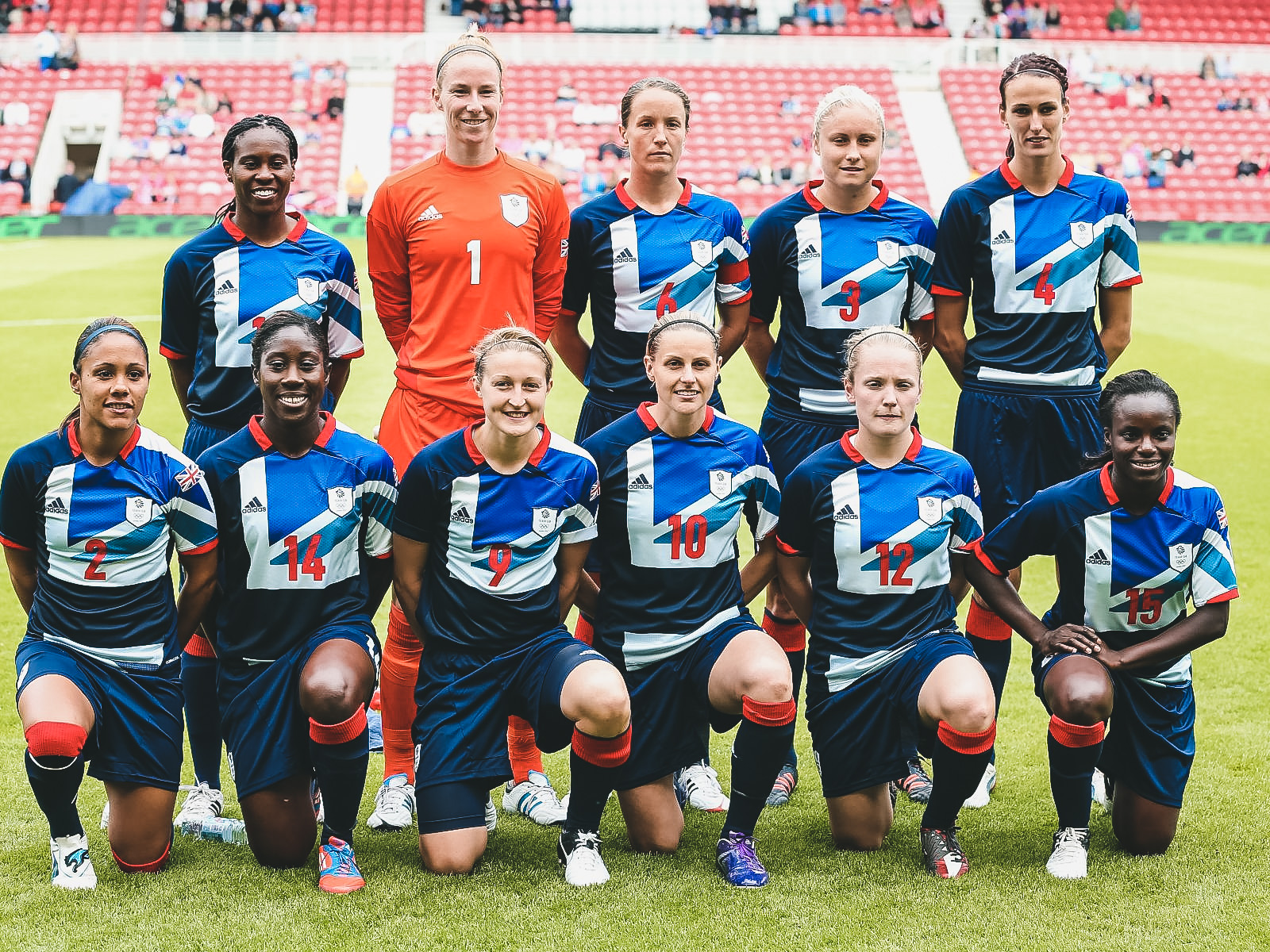
Going into the second match against Cameroon, Team GB knew that a win would see them progress into the next round. The win was bittersweet for Iffy as this match would be her last involvement playing in the tournament after suffering the injury. She recalls, “I went to plant my studs and then turn, a movement that I’d do over and over again but my foot got caught in the turf and I slipped. I remember thinking, Hope’s going to kill me here but I couldn’t get up. I don’t think I’d ever been in a position to walk off the pitch before, so this was the first and only time I’ve ever been required to be stretchered off.
“At the time I had no idea of the severity of it. I had an idea about hamstrings and little muscle injuries but this was completely new to me. I was out of my depth and relying on the medical staff.
“After the test I was in my room and the medical team came up to me and let me know. I’d tore my ACL, my meniscus and had LCL sprain, so the three ligaments in my knee.
“At 31-years-old 31 you start thinking can I come back from it at that age and things like that? Within forty-eight hours I’m back in Scotland. For me, I wasn’t about staying in the mindset of wallowing and knowing that my Olympics was done, it was about getting the surgery.”
“Maybe it hit home watching the girls against Brazil at Wembley. That was definitely hard to then watch that and see that, but also, I was happy as I’d been in there and seen the preparation. As soon as we got to the quarterfinals I’d already made the decision that I was going to drive down and, you know, go support the girls as it wasn’t about me, I didn’t even want to go to the team hotel because I didn’t want to be a distraction.
After the highs of supporting the girls and taking part in the closing ceremony and the post-event celebrations, I couldn’t begin to imagine what it was like returning to rehab and normality. Although, for Iffy even being in Scotland for her rehab wasn’t normality as she’d spent so much of her adult life living abroad. “After finishing season’s in Sweden and America I tended to come home for about a month. So knowing that I’m in Scotland for like eight or nine months was weird because I’ve never been home that long. You open the door and it’s raining and all I’ve got to do is training and rehab.”
“I remembered watching the Paralympics, watching these amazing Paralympians, especially swimmers who have no arms or legs and I ’m thinking that was so inspiring for me. My pain was temporary and you can overcome it. Instead of me thinking if I’ll ever be the same when I come back, I am was in awe of them and that actually helped me.”
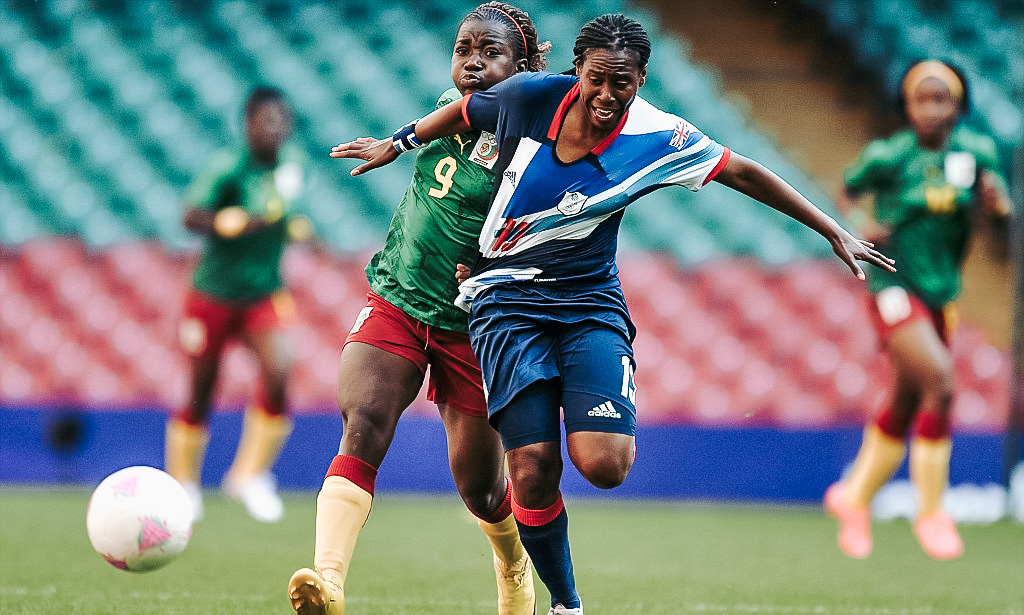
Looking back nine years on Iffy fondly remembers her experience with Team GB. “I can’t take anything but good things from that. People always point out about my ACL injury but for me, while it’s a cliché everything happens for a reason. No matter what the Olympics gave me the best moments and even when it was a negative, it turned out to be a positive for the rest of my career. I’ve got a lot of memories, a lot of joy, even speaking about it and looking at the pictures it’s nothing but positivity.”
On the current squad, Iffy supports Hege Riise decision to include a number of players who played in London. She said, “There is no substitute for experience. The Olympics is not like a Euros or a World Cup and you’ll want players who have been there and will not be overawed by the experience. They influence will settle everyone down.”
To the players currently preparing to fly out to Tokyo, Iffy would encourage them to enjoy the experience first and foremost. She told me, “It’s such a unique experience and on that you may never get again. So just attack it like you’d attack any big game. Don’t get overawed or even be on social media, just stay in your bubble and do whatever you’ve got to do. There is a reason why you’re there and just don’t deviate from who you are as a player and just stay in the moment.”
This is only a small part of our interview with Iffy, to hear more please listen to the full interview on the latest podcast episode which can be found on all good podcast providers.
Team GB has been drawn in Group E and will face hosts Japan, Chile and Canada. Their campaign will kick off against Chile on July 21st, they will play Japan on July 24th and finish the group stage against Canada on July 27th.





